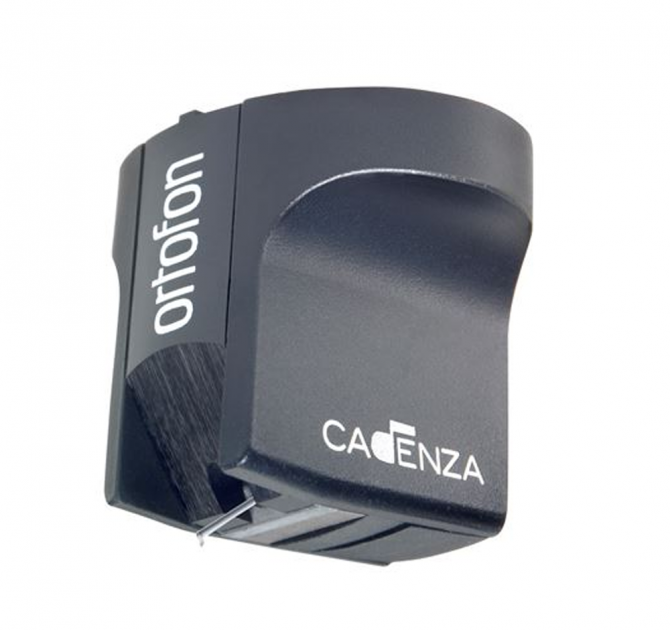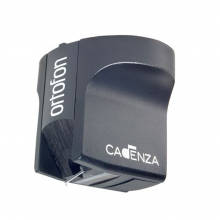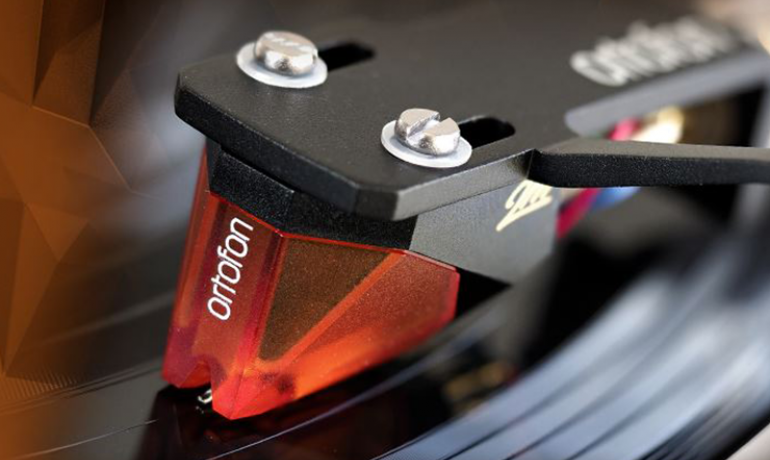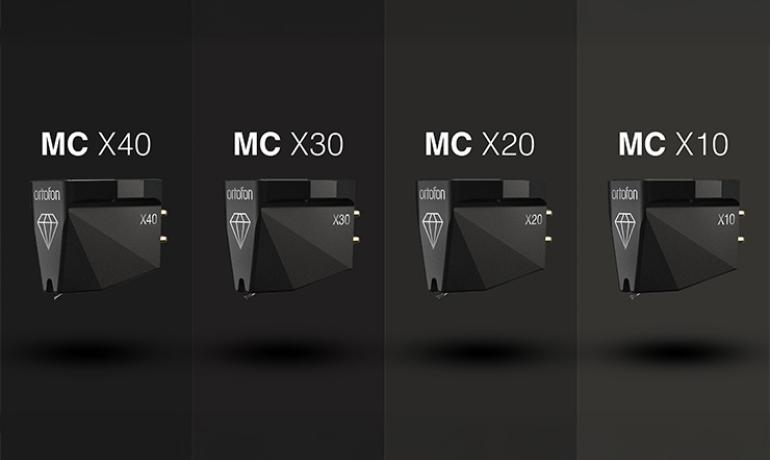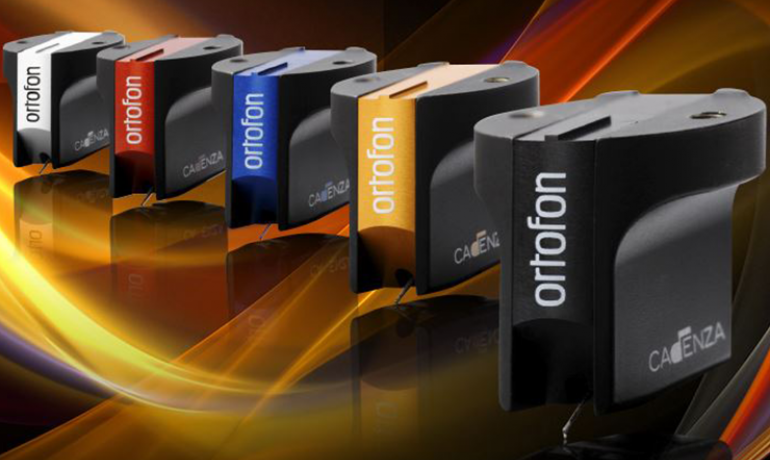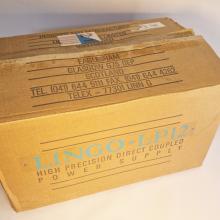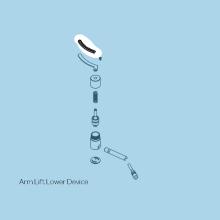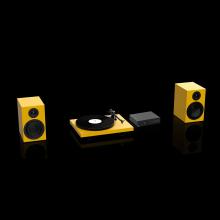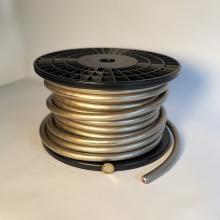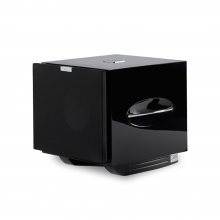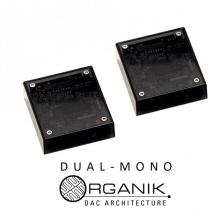Ortofon Cadenza Black Cartridge
Cadenza Black is optimised for an amazing tonal neutrality, dynamics and purity of sound.
The Cadenza Black model is using a Nude Shibata stylus with a boron cantilever. The effective mass of the stylus/cantilever system is extremely low due to the use of a very thin boron rod. This material is extremely stiff and even more lightweight than aluminium.
It also uses the WRD/Wide Range Damping-system applied for MC Windfeld, MC A90, MC Anna, Xpression and MC A95 cartridges, controlling the high and low frequency damping separately.
The coil wire is the famous Ortofon Aucurum wire, which is a gold plated 6NX copper wire.
Cadenza Black is high performing on areas like detail, consistency and sound staging.
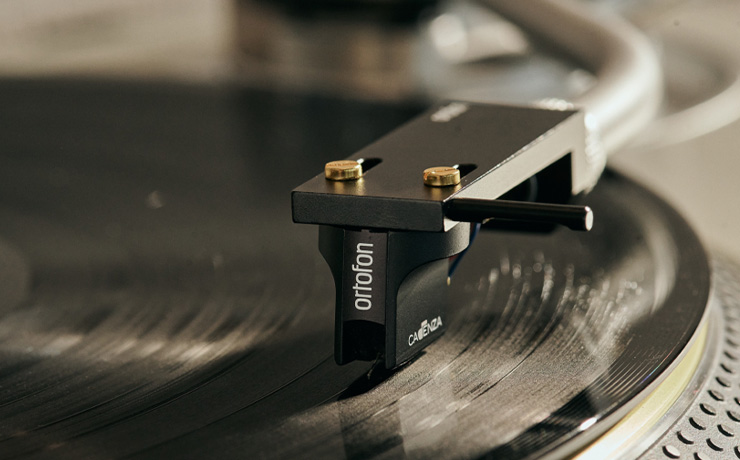
The Cadenza series
Ortofon constantly look for new technology to be used in their products and push the performance of existing technology. Thus they assure the highest level of performance and quality. The Kontrapunkt models and MC Jubilee became market standards and are among our most popular cartridges. Nevertheless Ortofon decided to develop a new cartridge series that is even more ambitious.
By carefully implementing cobalt-iron pole pieces, new improved winding process on the armature, using extruded aluminium housing in the models as well as other changes, Ortofon have been able to reveal new possibilities in performing the analogue information. It was also decided to make a more complete range of cartridges, which meant an introduction of a moving coil Cadenza Mono model to support customers, who have an extended interest in micro groove mono records.
The story about Cadenza
Cadenza (from Italian: meaning cadence) refers to a portion of a concert in which the orchestra stops playing, leaving the soloist to play alone in free time, without a strict, regular pulse. A cadenza can be written or improvised. It’s usually the most elaborate and virtuosic part the solo instrument plays during the whole piece. At the end of the cadenza, the orchestra re-enters, and generally finishes off the movement.
During the 19th century, composers began to write cadenzas out in full. Others wrote cadenzas for works, where the composer had intended for the solo to be improvised, in order for the soloist to have a well formed solo that they could practice in advance. Some of these have become so widely played and sung that they are effectively a part of the standard repertoire.
in the box
- Cadenza black
- 1 x Stylus brush, fibre
- 1 x Screwdriver
- Leadwires, pair LW-6N
- Screws, pair M2,5 x 3
- Screws, pair M2,5 x 5
- Screws, pair M2,5 x 6
| Output Voltage (at 1kHz, 5cm/sec): | 330μV |
| Channel Balance at 1kHz: | < 0.8dB |
| Channel Separation at 1kHz: | > 27dB |
| Channel Separation at 15kHz: | > 20dB |
| Frequency Range (at -3dB): | 20Hz - 60kHz |
| Frequency Response 20Hz - 20kHz: | +1.5 / 0 |
| Tracking Ability at 315Hz: | Typically 90μm |
| Compliance, Dynamic, Lateral: | 16μm / mN |
| Stylus Type: | Nude Shibata |
| Cantilever: | Boron |
| Stylus Tip Radius r / R: | 6 / 50μm |
| Tracking Force Range: | 2.0 - 2.5g (20 - 25mN) |
| Recommended Tracking Force: | 2.3g (23mN) |
| Tracking Angle: | 20º |
| Internal Impedance / DC Resistance: | 5Ω |
| Recommended Load Impedance: | > 10Ω |
| Cartridge Body Material: | Stainless Steel Aluminium |
| Cartridge Colour: | Black / Black |
| Cartridge Weight: | 10.7g |
